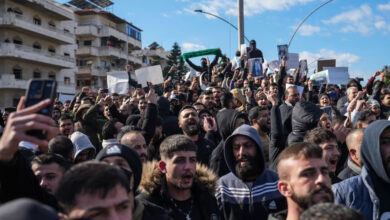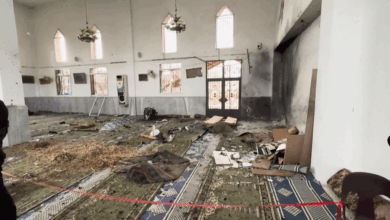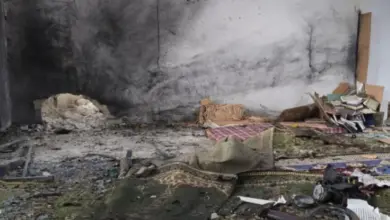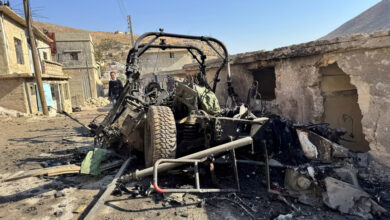More than 100 people have been killed in Syria, rights activists said, as the Arab League announced an advance party would be sent to the country this week to pave the way for monitors who will try to help end nine months of violence.
The Syrian Observatory for Human Rights said on Monday that more than 60 army deserters had been shot dead by machine gun fire as they tried to flee their base, citing accounts from wounded survivors. It also counted 40 civilians shot dead across Syria in the crackdown on protests.
The British-based observatory said three soldiers had died in fighting with armed rebels backing the opposition in Idlib province. The state news agency SANA said security forces there had killed at least one "terrorist" and wounded several.
The bloodshed occurred the same day Syria agreed to let Arab states monitor its compliance with an Arab League peace agreement aimed at stopping violence against anti-government protesters.
The United Nations says more than 5000 people have died since the protests began. Syria says more than 1100 security personnel have been killed by foreign-backed "armed terrorist gangs."
The Arab League, which has imposed economic sanctions on Syria, had threatened to take the issue to the United Nations Security Council.
However, the executive head of the League said after the signing of a protocol on foreign observers that there was no immediate plan to lift sanctions that were imposed when Damascus at first refused outside monitors. Nabil al-Araby said observers would now determine whether Syria's government was complying.
The League would prepare a mission to monitor compliance with an agreement that calls for troops to withdraw from cities where protests have been held, for political prisoners to be freed, and for a dialogue with opposition groups, most of whom are set on following the example of Egypt and others in ending decades of one-man rule.
Syrian opposition leaders dismissed the agreement as a new stalling tactic by President Bashar al-Assad's government and called instead for foreign military intervention to stop Syria's crackdown on a nine-month-old pro-democracy protest movement.
Damascus said it had been urged to sign by Russia, its long-time ally and arms supplier, which has shown signs of losing patience. Moscow praised the deal as a chance for stability.
In a further sign of international pressure, the UN General Assembly voted to condemn Syria's use of force to quell protests, with Russia and China abstaining instead of voting against.
Insisting that Syria had not been forced into submission, Foreign Minister Walid al-Muallem said he had won several unspecified modifications before signing the deal, which initially allows in observers for one month.
"The Arab League delegation's reports will be sent to me and the League's secretary general at the same time, and he and I will discuss them before any other action is taken," Muallem said. "That is the text after Syria's modifications."
The remarks were broadcast on Syrian television. Most foreign media have been barred from Syria this year.
"Point of no return"
While many Arab League rulers scarcely take more heed of public opinion than Assad, they are anxious to calm the situation and avoid a civil war that could shake a region already riven by rivalries between non-Arab Shia power Iran and Sunni Arab heavyweights such as Saudi Arabia.
Iran, Syria's key backer, said the agreement to let in observers from the Arab League was "acceptable," if not ideal.
The US State Department said it was skeptical much would change.
"We are really less interested in a signed piece of paper than we are in actions to implement commitments made," spokeswoman Victoria Nuland told reporters in Washington.
With rebel fighting against the army overshadowing peaceful protests, analysts said the Arab deal would do little to change Syria's spiraling bloodshed but indicated that Damascus was feeling the international pressure.
"The international and regional isolation is beginning to have an impact on their thinking," said Julien Barnes-Dacey, of Control Risks in London.
"But a point of no return has been passed by both protesters and authorities. They are not going to withdraw [from protest centers] and we are not going to see the end of deaths."




